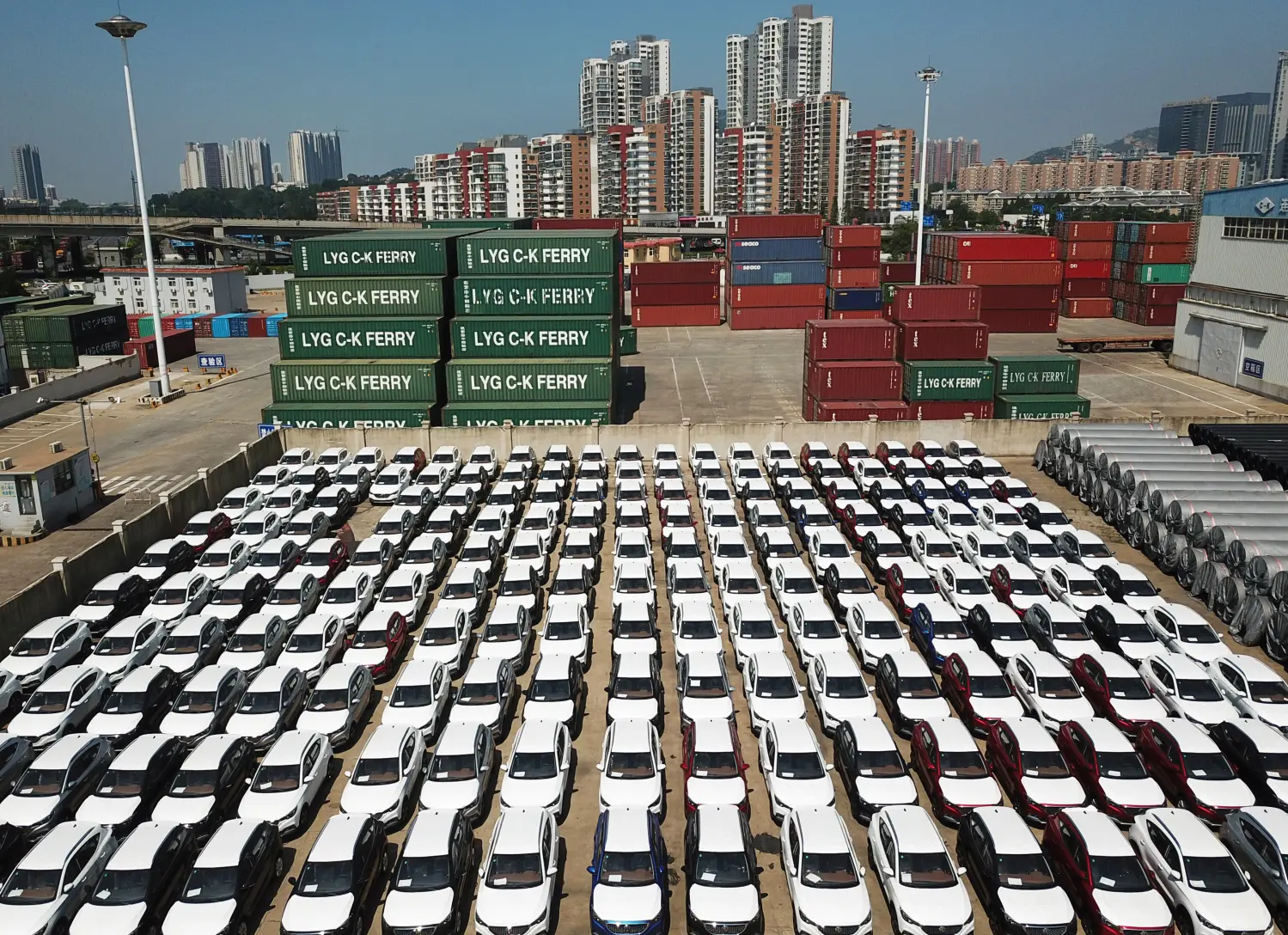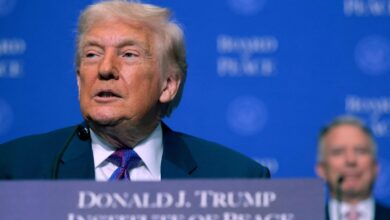
By Todd G. Buchholz
Special to The Times Kuwait
Donald Trump and Kamala Harris agree on little, except a disdain for free trade. Ahead of the 2024 US presidential election, Trump has threatened a 10 percent across-the-board tariff on imports, while Harris, whose policy positions remain murky, has indicated that she would follow in President Joe Biden’s footsteps with “targeted and strategic tariffs.” American politicians’ free-trade enthusiasm of the 1980s and 1990s has vanished, and this scares other countries, which know that the United States, despite its wobbles and foibles, remains the world’s most attractive trading partner.
Of course, free-trade economists should try to buck the anti-trade wave with facts. But, given the widespread antipathy to globalization, there is a more urgent question at hand: What principle should guide policy?
I propose that countries whose armies march and drill together should trade together, too. Rather than slam the border shut haphazardly, the US must be able to distinguish good from bad actors on the world stage.
Since the 2008 financial crisis, trade as a share of US GDP has shrunk by about 10 percent. The blunt truth is that America, with its enormous internal market of 335 million people, can weather trade wars and skirmishes better than most other countries. Over the last 15 years, US GDP has outpaced that of every G7 country, leaving even Chinese officials wondering where they have gone wrong.
The anti-globalization narrative seems to treat all foreigners alike, imagining that they are all trying to steal jobs, swipe intellectual property, and take advantage of loopholes. As a result, American trade warriors can get just as worked up over butter and maple syrup from Canada as bomb components from North Korea. But the US should be more open to trade with countries with which it maintains close military-to-military cooperation; it conducts dozens of joint training maneuvers with the Canadian armed forces and, of course, none with North Korea. Alongside Canada, countries such as Australia, the United Kingdom, Japan, and Germany should be at the top of the list.
When Biden took office, most pundits assumed that he would do the opposite of what his predecessor had done, including reversing the policies of Trump’s US Trade Representative, Robert Lighthizer. Instead, Biden embraced Trump’s trade restrictions but with a disregard for national security. In fact, some of his moves are as baffling as they are alarming. For example, Biden hiked tariffs on Canadian lumber and shut down the Keystone pipeline, which would have carried oil from Canada to US refineries. But he relaxed oil-export constraints on Iran and even released $6 billion in frozen Iranian assets, which the country used to menace US allies through its Hezbollah and Houthi proxies.
The Biden administration’s border policy has increased antipathy toward trade. After all, many Americans figure, if the federal government did not notice nearly one million ‘got-away’ (yes, that’s the official term) migrants crossing the Southern border in 2023, how can it be trusted with 20 million uninspected containers of corrugated steel arriving on ships from who-knows-where? If the government cannot mind pedestrians, how can it mind engine pistons marked ‘Toronto’, which might have originated in Tianjin?
Global trade increases national wealth, so perhaps Americans do not want certain countries to grow richer. Given that trade success can inflame as much as enrichen, a wealthier China may not be in the interest of the US at this time. China’s threats to Taiwan, construction of artificial islands in the South China Sea, confrontations with Japan, and overt pledges to dominate the world economy harken back to Nikita Khrushchev’s alleged warning, “We will bury you.”
Whoever wins the White House in November must create a stronger link between national and economic security. The US is currently vulnerable in many spheres. Precious semiconductor equipment lies in Taiwan, roughly 100 miles from mainland China and within striking range of its Navy’s catamarans, not to mention its new aircraft carriers. China and Russia have a head start on hypersonic missiles. Russian and Iranian proxies in the Red Sea and the Strait of Hormuz are disrupting trade with explosive-laden drones, proving themselves to be far more lethal pirates than Johnny Depp’s mischievous Jack Sparrow. In the past year, Red Sea commercial traffic dropped by half, with ships instead traveling an extra 6,000 miles around the southern tip of Africa. Supply-chain worries continue to weigh on businesses long after pandemic-era lockdowns ended.
No one needs to be convinced that the world has grown more dangerous. On any given night, newscasts can show missiles launching from Lebanon, Crimea, or North Korea. But it is even more dangerous if US economic policy does not differentiate between enemy fire and friendly competition. Americans should trade with those who march in step with us on battlefields, and in defense of democracy.
If the US government did not notice nearly one million migrants crossing the Southern border in 2023, how can it be trusted with 20 million uninspected containers of corrugated steel arriving on ships from who-knows-where?

Todd G. Buchholz
A former White House director of economic policy under President George H.W. Bush, and managing director of the Tiger hedge fund, is the recipient of the Harvard Department of Economics’ Allyn Young Teaching Prize. He is the author of New Ideas from Dead Economists, The Price of Prosperity, and co-author of the musical Glory Ride.
Copyright: Project Syndicate, 2024.
www.project-syndicate.org












